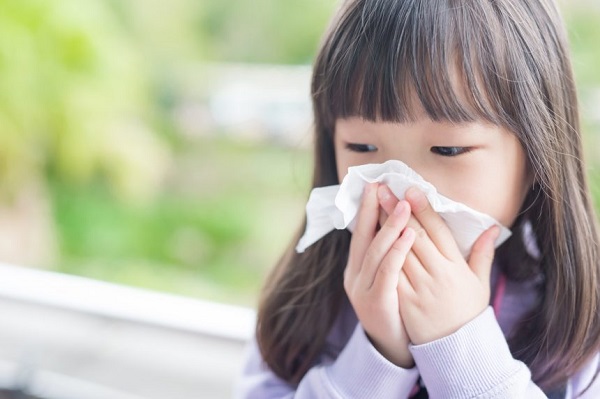2019-12-16 02:49:14
Have you noticed that a sudden change in weather can trigger your asthma symptoms? If so you're not the only one. Cold weather, thunderstorms, hot weather, or sudden changes in temperature all trigger asthma symptoms for some people.
What causes asthma?
Asthma is a condition in which your airways narrow and swell and produce extra mucus. This can make breathing difficult and trigger coughing, wheezing and shortness of breath. For some people, asthma is a minor nuisance. For others, it can be a major problem that interferes with daily activities and may lead to a life-threatening asthma attack
Asthma symptoms may include coughing, shortness of breath, a feeling of tightness in the chest,and wheezing. Severe symptoms will make it impossible to perform daily functions. At this point, the asthma is life-threatening. Asthma can't be cured, but its symptoms can be controlled. Because asthma often changes over time, it's important that you work with your doctor to track your signs and symptoms and adjust treatment as needed.
Allergic atopic factors are the leading cause of asthma. The reason is that when the body meets allergens (substances that are foreign to the body) or types of irritant properties, it will cause an allergic reaction, that is, an asthma attack, which is related to the time. sudden changes in weather, cold, wet, northeast monsoon, tropical depression. Therefore, in people with atopic allergies (allergic rhinitis, urticaria, atopic dermatitis, disc disease, eczema, exzema) often suffer from asthma.

Children and older adults should beware of asthma when it gets cold.
Some microorganisms (bacteria, viruses, fungi) can also be allergens that cause asthma, especially some parasites (mites, mites, mold, roundworm). Asthma can also be caused by the effects of smoke, dust, chemicals (kitchen smoke, tobacco smoke, industrial smoke, toxic chemicals) or dog, cat hair ... Some foods can also stimulate asthma. or make asthma worse when eating (shrimp, crabs, shrimp sauce).
In addition, some medications for non-steroidal arthritis have side effects that cause asthma or make asthma worse (aspirin, diclofenac, piroxicam ...) or hypertension medicine (atenolol ...). Asthma can be inherited, if one parent has asthma, the children may have asthma (25 - 30% risk of the child getting the disease); if both parents have asthma, there is a 50 to 60% risk of the child having the disease.
What are the symptoms of asthma?
People with asthma have symptoms when the airways are narrowed (bronchospasm), swollen (inflamed), or filled with mucus. Common symptoms of asthma include:
- Coughing, especially at night
- Wheezing
- Shortness of breath
- Chest tightness, pain, or pressure
Not every person with asthma has the same symptoms in the same way. You might not have all of these symptoms, or you might have different symptoms at different times. The symptoms might also vary from one asthma episode to the next, being mild during one and severe during another.
Some people with asthma might have extended symptom-free periods, interrupted by periodic asthma episodes, while others have some symptoms every day. In addition, some people with asthma might only have symptoms during exercise, or when they are exposed to allergens or viral respiratory tract infections.
Mild asthma episodes are generally more common. Usually with treatment, the airways open up within a short time period. Severe episodes are less common, but last longer and require immediate medical help. It is important to recognize and treat even mild symptoms to help prevent severe episodes and keep asthma in better control.
What are the early warning signs of asthma?
Early warning signs are changes that happen just before or at the very beginning of an asthma episode. These changes start before the well-known symptoms of asthma and are the earliest signs that a person's asthma may be worsening.
In general, these signs are not severe enough to stop a person from going about his or her daily activities. By recognizing these signs, you can stop an asthma episode or prevent one from getting worse. Early warning signs include:
- Frequent cough, especially at night
- Losing your breath easily or shortness of breath
- Feeling very tired or weak when exercising
- Wheezing or coughing during or after exercise
- Decreases or changes in a peak expiratory flow
- Signs of a cold, upper respiratory infection, or allergies (sneezing, runny nose, cough, congestion, sore throat, and headache)
- Trouble sleeping
If you have early warning signs or symptoms, you should follow the steps listed in your Asthma Action Plan. If you do not have one, you should notify your provider.
Asthma prevention
While asthma itself is not preventable, self-care and taking sensible preventative measures can reduce the risk of asthma symptoms and the asthma getting worse. Some of the things you can do to help keep your asthma under control are described below.
Self-care is an integral part of daily life. It involves taking responsibility for your own health and wellbeing with support from the people involved in your care. Self-care is what you do every day to stay fit and maintain good physical and mental health, prevent illness or accidents and care more effectively for minor ailments and long-term conditions.
A large part of keeping your asthma under control and preventing 'asthma attacks' involves preventative measures like avoiding known triggers and taking your preventer medicine every day.
As with all long-term conditions, it is important to have regular reviews, so a good relationship with your doctor means that you can easily discuss your symptoms or concerns and adjust your asthma plan.
All people with asthma (or their parents or carers, if children) should consider vaccination against the flu, especially if they have severe asthma. Adults with asthma can also benefit from vaccination against pneumococcal disease in some situations. Vaccination against influenza is free for people with severe asthma and for everyone over 65.
If you are a smoker and you have asthma, you should stop smoking to significantly reduce the severity and frequency of your symptoms. Smoking can also reduce the effectiveness of asthma medication. If you do not smoke and you have asthma, avoid being exposed to tobacco smoke.
When to see a doctor
Seek emergency treatment
Severe asthma attacks can be life-threatening. Work with your doctor to determine what to do when your signs and symptoms worsen — and when you need emergency treatment. Signs of an asthma emergency include:
- Rapid worsening of shortness of breath or wheezing
- No improvement even after using a quick-relief inhaler, such as albuterol
- Shortness of breath when you are doing minimal physical activity

For appointment or more information about medical services provided by the ENT Clinic, please contact:
- Nurse Station: (8428) 6280 3333, ext. 8172
- Reception Desk: (8428) 6280 3333, ext. 8137 or 8139
Or call City International Hospital
- Operator: (8428) 6280 3333, ext.0
- Address: No. 3, 17A Street, Binh Tri Dong B Ward, Binh Tan Dist. (Next to AEON Mall Binh Tan), Ho Chi Minh City.
- Website: https://cih.com.vn/en/
- Email: This email address is being protected from spambots. You need JavaScript enabled to view it.
Disclaimer:
As a service to our readers, City International Hospital (CIH) provides access to our library of archived content. Please note the date of last review on all articles. No content on this site, regardless of date, should ever be used as a substitute for direct medical advice from your doctor or other qualified clinician.










